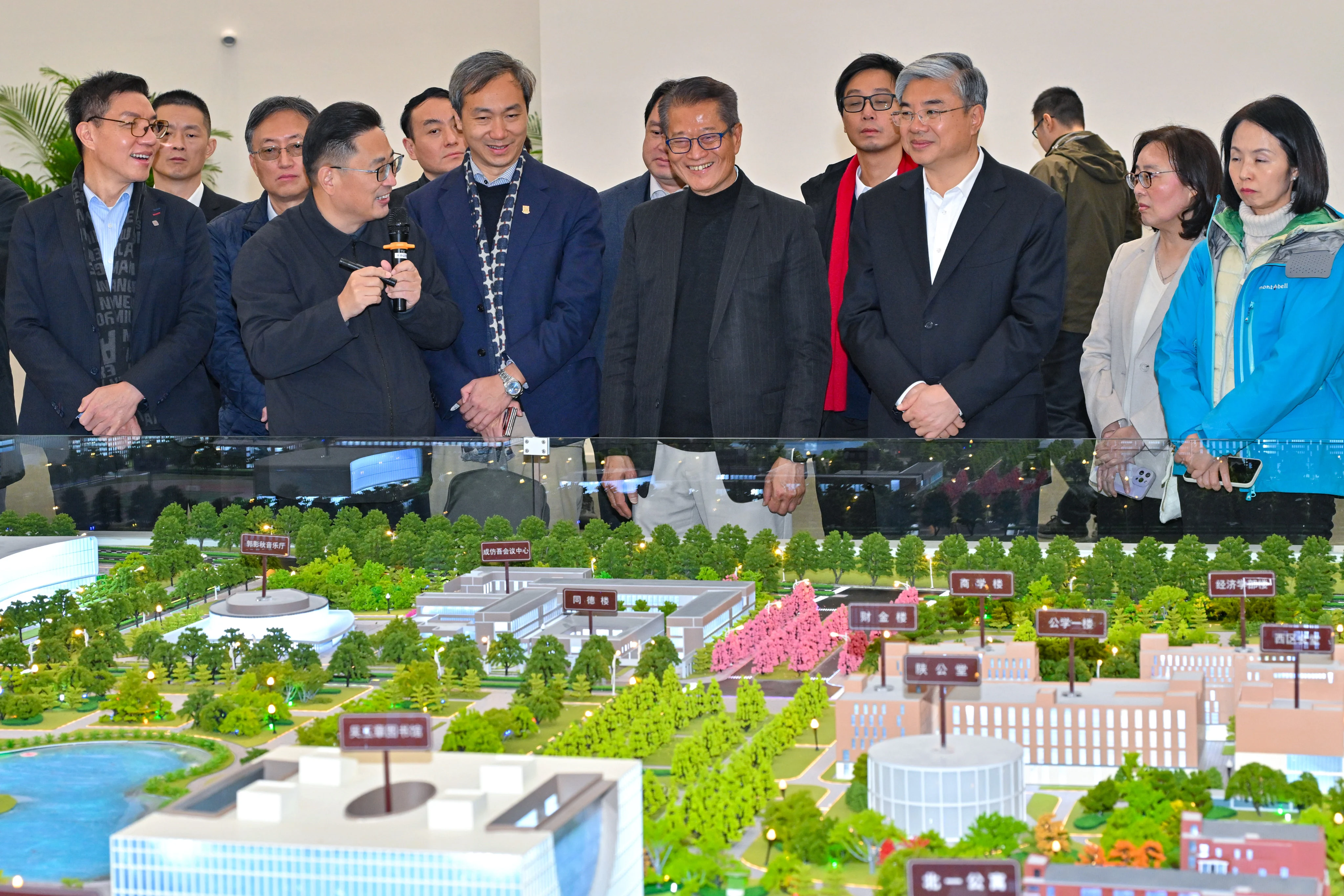Copyright scmp

Mainland China’s methods in achieving rapid development in recent years offer “valuable insights” for Hong Kong to advance its planned Northern Metropolis megaproject, the city’s finance chief has said. Financial Secretary Paul Chan Mo-po also pledged that Hong Kong would align with national development strategies and stay focused on accelerating the megaproject near the mainland border, a key platform of the city’s Greater Bay Area integration. Hong Kong would also leverage its role as a “superconnector” to help strengthen ties with the Beijing-Tianjin-Hebei region, Chan said in his weekly blog post on Sunday. Chan returned from a visit to Beijing and the Xiongan New Area in Hebei province last week. His trip also coincided with the fourth plenary session of the Communist Party’s Central Committee in Beijing where cadres gathered to formulate the 15th five-year plan – the country’s development blueprint for 2026-30. He said approval of the blueprint’s recommendations, as well as the rapid development of Beijing’s sub-centre and Xiongan, highlighted the mainland’s unique development model. “Witnessing the dramatic transformation of [Beijing’s sub-centre and Xiongan] in just a few years deeply inspired our delegation. We believe their experiences offer valuable insights for the future development of Hong Kong’s Northern Metropolis,” Chan said. The aim of the Hong Kong megaproject is to transform 30,000 hectares (74,130 acres) of land near the border into an engine for economic growth and a housing hub. Chan said the city should also speed up the development of the Northern Metropolis and unlock its potential by removing barriers. “Accelerating its development is vital and a top policy priority for the [Hong Kong] government,” he added. The establishment of Xiongan New Area, about 100km southwest of Beijing, was announced in 2017. The flagship project was intended to relieve Beijing of non-essential capital city functions and advance the coordinated development of the Beijing-Tianjin-Hebei region. It has now developed into a modernised digital smart city. Chan hailed the mainland for its “strength of policy continuity, execution capability and organisational coordination” and said these served as a good guide for Hong Kong to develop the border town megaproject. “Several critical areas require … swift action for the Northern Metropolis,” Chan said in his blog post. “These include innovating systems and removing barriers to unlock development potential, flexibly formulating policies to attract global talent and align with target industries, using technology and digitalisation to enhance integrated management and public services, and deep planning and coordination to foster Greater Bay Area city cluster synergy.” He added that Hong Kong should leverage the advantages offered by the “one country, two systems” governing principle and the city’s role as a “superconnector” to strengthen ties with the Beijing-Tianjin-Hebei region in industry, innovation and academia. Despite tense geopolitics and a global economic slowdown, the mainland had made rapid progress in the past few years, Chan noted. From 2021 to 2024, the mainland’s economy grew at an average annual rate of 5.5 per cent, contributing about 30 per cent to global economic growth, he said, adding the country now led the world in the number of top 100 innovation clusters. The 15th five-year plan outlined several strategic goals, including building a modern industrial system, accelerating technological self-reliance, strengthening the domestic market, boosting consumption and investment, and promoting regional coordination. “These initiatives respond precisely to current internal and external challenges, ensuring the country’s steady progress towards high-quality development. Hong Kong must recognise and seize the opportunities these goals present,” Chan said. He also pledged that the government would firmly align with national development, citing the strategy laid down by President Xi Jinping: “Hold firm to the green hills and follow the blueprint to the end.” “Whether accelerating the Northern Metropolis or reinforcing Hong Kong’s status as a global financial, trade, shipping and innovation centre, we must stay focused and determined,” Chan said.



